What is Entity SEO and Why Should You Care?

Traditional SEO is all about identifying specific keywords, building a topic, and matching it to user search intent, and creating content to take advantage of that overlap.
It's also not the only kind of SEO. There are other ways of looking at SEO, from SEO targeting the LLM summaries, to SEO focused on products and item details, to SEO focusing more on people than on data.
One of the more recent ways to look at SEO, and something Google has been promoting without really naming it since at least the introduction of the knowledge graph, is entity SEO.
What is it?
What Are Entities?
First things first, what are entities?
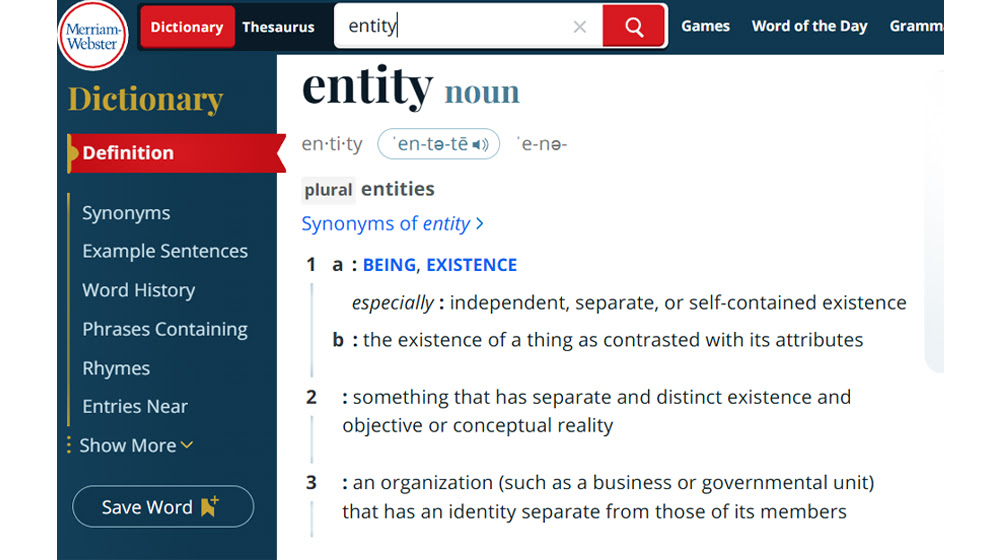
1: Being, Existence
2: Something that has a separate and distinct existence and objective or conceptual reality.
An entity is a thing or a concept. A person, like you or me or Neil Patel or Brian Dean, is an entity. A company or organization, like Google or Microsoft, is an entity. A location, like New York or Los Angeles, is an entity.
More than that, though, an entity doesn't have to be physical. The concept of happiness is an entity. The experience of hunger is an entity. Memes are entities.
Entities are also often language-agnostic. "Apple," the fruit, refers to an entity, and "Manzana" and "Pomme" are both the same entity (apple in Spanish and French, respectively). While some concepts change from language to language, many have equivalents.
Entities in SEO
Entities serve a role similar to keywords, similar to topics, but distinct from either.
Take, for example, the word "Apple".
As a keyword, this word stands alone. To know what "apple" is being discussed, you have to examine the context. It could be Apple Computers. It could be the fruit. It could be any of a number of content creators nicknamed Apple. It could be the Big Apple.
As an entity, the concept of an apple comes with all of that context as baggage along with it. Discussing an apple discusses fruit, different species of apples, apple growing seasons, apple seeds, and apple cultivation. Discussing the company, Apple associates it with the iPhone, with the app store, with Apple Computers, and even with tech in general, the FAANG paradigm, and so on.
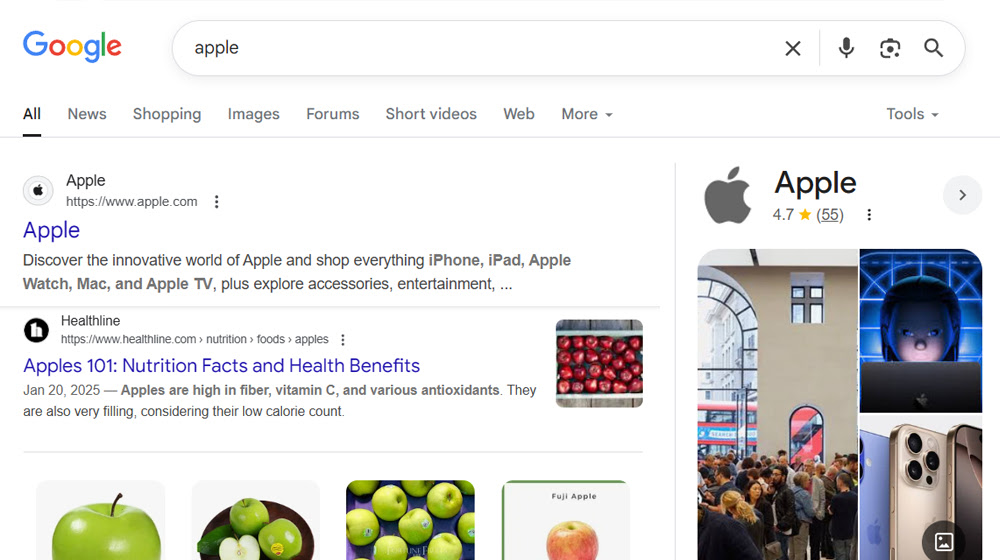
With traditional SEO, relying on individual keywords, you're building up your website into a resource focused on an entity. Each page is that bit of context, and taken all together, a person could assume you're focused on that entity as a whole.
Many, many years ago, when Google was brand new, the idea of leveraging entities didn't exist. Later, when SEO was more firmly implemented, building an artificial entity out of your use of keywords was the way to do it.
Eventually, though, Google has built what is essentially a neural network of connections between words, concepts, related words, and ideas. While the word "Apple" has many different meanings as a representation of different entities, Google understands those entities. The use of the word Apple can trigger a glance at other words and patterns, matching it to the most relevant entity cloud, and implicitly understanding what the entity is about.
Today, all of this is even more enhanced through natural language processing and LLM training. Google has invested countless billions of dollars into this comprehensive understanding of language, but beyond language itself, the understanding of concepts behind words.
While you can't see everything Google knows, you can explore using their natural language AI and NLP API. Just check out their demo here, and you can see what their understanding of a paragraph can look like. What words are representing what kinds of entities, what sentiment is attached to them, and even how likely they are to fall into any sort of moderated category of information.
Why Entities Matter in SEO
The traditional model of SEO is to find keywords and then create individual pieces of content around each of those keywords.
This is still fine and still works. Except, with an entity-based understanding of content and concepts, you risk ending up effectively duplicating a lot of effort.
This is most obvious with similar but not identical keywords. A general pest control company creating pages for "rodent control" and for "mouse control" might find that one of them is ignored, as they're effectively identical pages when you have an understanding of what a rodent and what a mouse is, and that controlling them is effectively the same thing.
This is also why, when you search for something using Google, you can find results that satisfy your query without ever actually using the words you typed in. It's how Google helps fulfill searches where people might not know the specific term, or might spell it wrong, or might only know related concepts.
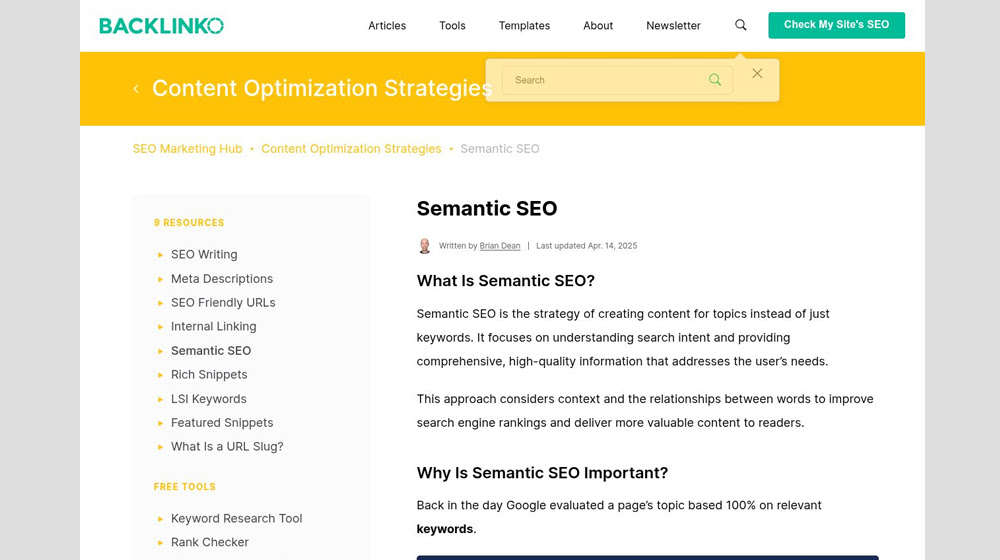
Image source: https://api.urlbox.com/v1/IL3uC1ql3sIOqhyQ/jpeg?url=https%3A%2F%2Fbacklinko.com%2Fhub%2Fseo%2Fsemantic-seo&block_ads=true&hide_cookie_banners=true&click_accept=true&press_escape=true&block_frames=true&force=true&wait_until=requestsfinished
With Google's overall push towards semantic SEO, the use of natural language processing, voice search, LLM overviews, and other tools all become ways to help people find what they need using entities rather than specific keywords.
Nothing is perfect, and we've all had cases where Google's understanding overwrites our understanding and we can't find what we're actually looking for, but that's relatively rare for casual use. It tends to crop up most in more technical and niche fields, or when you're searching for some half-remembered old content from years ago.
Google has been talking about this for years, by the way. They don't so much talk about entity SEO. But they do talk about writing useful information and covering topics rather than a slavish adherence to keywords and rigid content separation. They want organic discussions and coverage of topics - not narrow, barely-useful, constrained posts on niche topics.
What is Entity SEO?
Entity SEO is a way of looking at content production and marketing through the lens of how it covers entities rather than specific keywords.
When you look at marketing through this viewpoint, you start to see how things can be connected.

You can also start to see how many modern marketing concepts are just different ways of phrasing entity SEO.
Content clustering? That's building a map of related concepts surrounding an entity.
Schema markup? That's a way for you to provide context within a page to identify which entity, from possible choices, your content covers.
User intent? That's a way of figuring out what entities the user is looking for, and how to provide matching content for that entity.
How Entity SEO Looks in Practice
The downside of all of this is that you can't just start using entities in SEO as if they're keywords. In fact, entity-based SEO is very similar to traditional SEO as far as marketing is concerned. It's more of a way of thinking about SEO than it is about implementation.
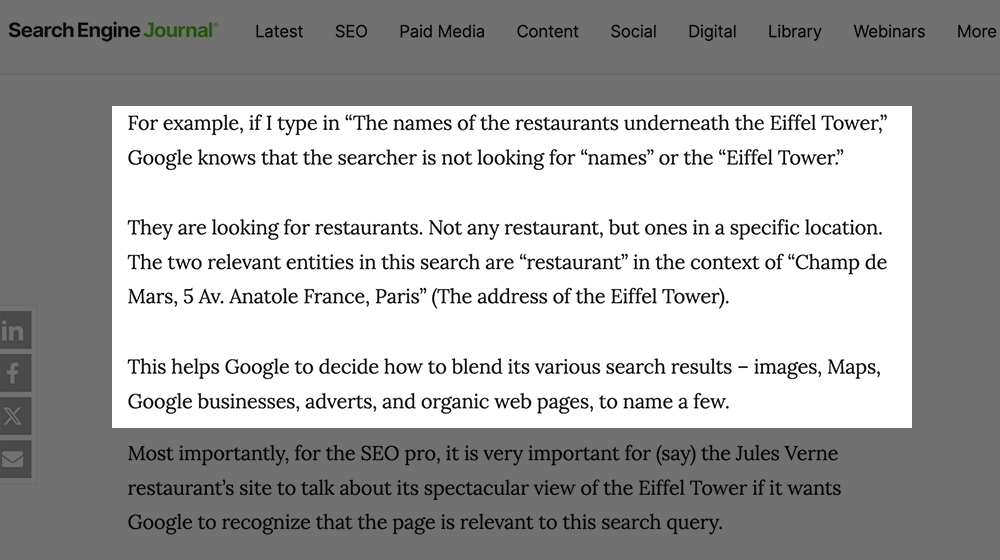
Dixon Jones has a great example in this post on Search Engine Journal.
"For example, if I type in "The names of the restaurants underneath the Eiffel Tower," Google knows that the searcher is not looking for "names" or the "Eiffel Tower."
They are looking for restaurants. Not any restaurant, but ones in a specific location. The two relevant entities in this search are "restaurant" in the context of "Champ de Mars, 5 Av. Anatole France, Paris" (The address of the Eiffel Tower).
This helps Google to decide how to blend its various search results – images, Maps, Google businesses, adverts, and organic web pages, to name a few."
Google looks at a query and identifies the relevant entities, and provides search results based on the most accurate information on those entities it knows about.
With entity SEO, your job is to look at what kinds of entities users are searching for and what kinds of entities your business represents. You then have to figure out how to make those two match as much as possible.
The good news is that the specific, mechanical ways you do this are all encompassed in modern marketing techniques. The restaurant under the Eiffel Tower can use Schema to find their location specifically, they can discuss resources and things to know for tourists in their content, they can post photos of the tower with arrows pointing to where their building is with keywords for image search, and they can optimize business profiles and maps listings.
All of this builds up who you are as an entity, what other entities you cover and are related to your business, and where you're positioned in the overall map of information covering that entity.
The other piece of good news is that you don't have to go out of your way to do things "the entity way" or anything. All of the entity association and processing is stuff that happens deep within Google's algorithms, their language processing, and conceptual understanding.
After all, Google didn't get where they are by forcing everyone to format their sites in specific ways. They got where they are by figuring out how to process language.
Okay, so they also got where they are by hammering the internet into shape, but that's another story for another time.
What You Need to Do for Entity SEO
There are two ways to view entity SEO.
One is as an overall concept. It's one of many ways of looking at marketing, and while it's all-encompassing and relevant, it's not necessarily important on a tangible, day-to-day level. The fact is. entities are so abstract and so overarching, you can't necessarily set out to target or optimize for one in a purely mechanical way.
As long as you periodically think about entities and how aligned your content is to the overall concept you're covering, so you don't veer off track into irrelevance, you're in a good spot.

The other way to view entity SEO is as a sort of check you run when you set up a content plan or finish a piece of content.
You can think about things that can enhance the "entityness" of a piece of content.
- Where does it fit in with your other content? Can it be added to an existing cluster, or form the seed of a new cluster?
- What can you do to enhance the tangible attributes of a piece of content, particularly in terms of specific relevant keywords or rich markup like Schema?
- What can you do to work outside of your site and build entity-based relationships with other websites that feed back into your overall topic in a beneficial way?
- When you examine your overall topic as an entity, are there aspects of that entity that you've overlooked or could use more attention?
The trick is that you can't just use entities as a basis for creating individual pieces of content. When you try, all you're really doing is targeting either a list of keywords, which dilutes the effectiveness of the content, or you're just aiming at high-level keywords.
When you get right down to it, entity SEO is all about understanding the sum of a concept rather than focusing on a narrow element of that concept, and building your marketing around that understanding. It's less mechanical and more conceptual, but no less valuable for it.





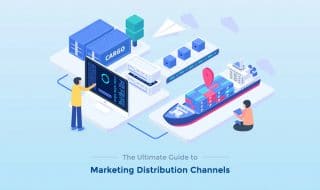




Comments